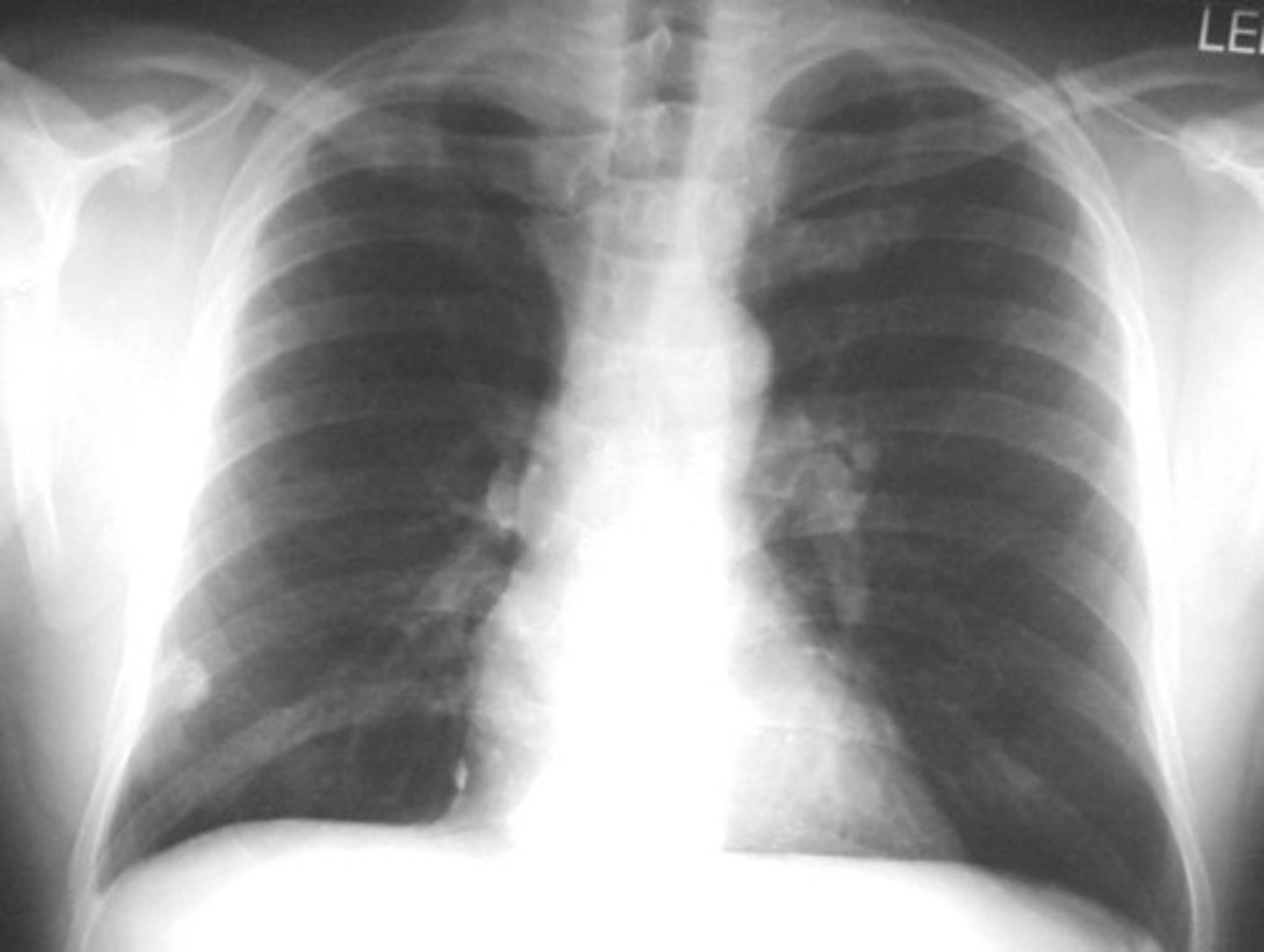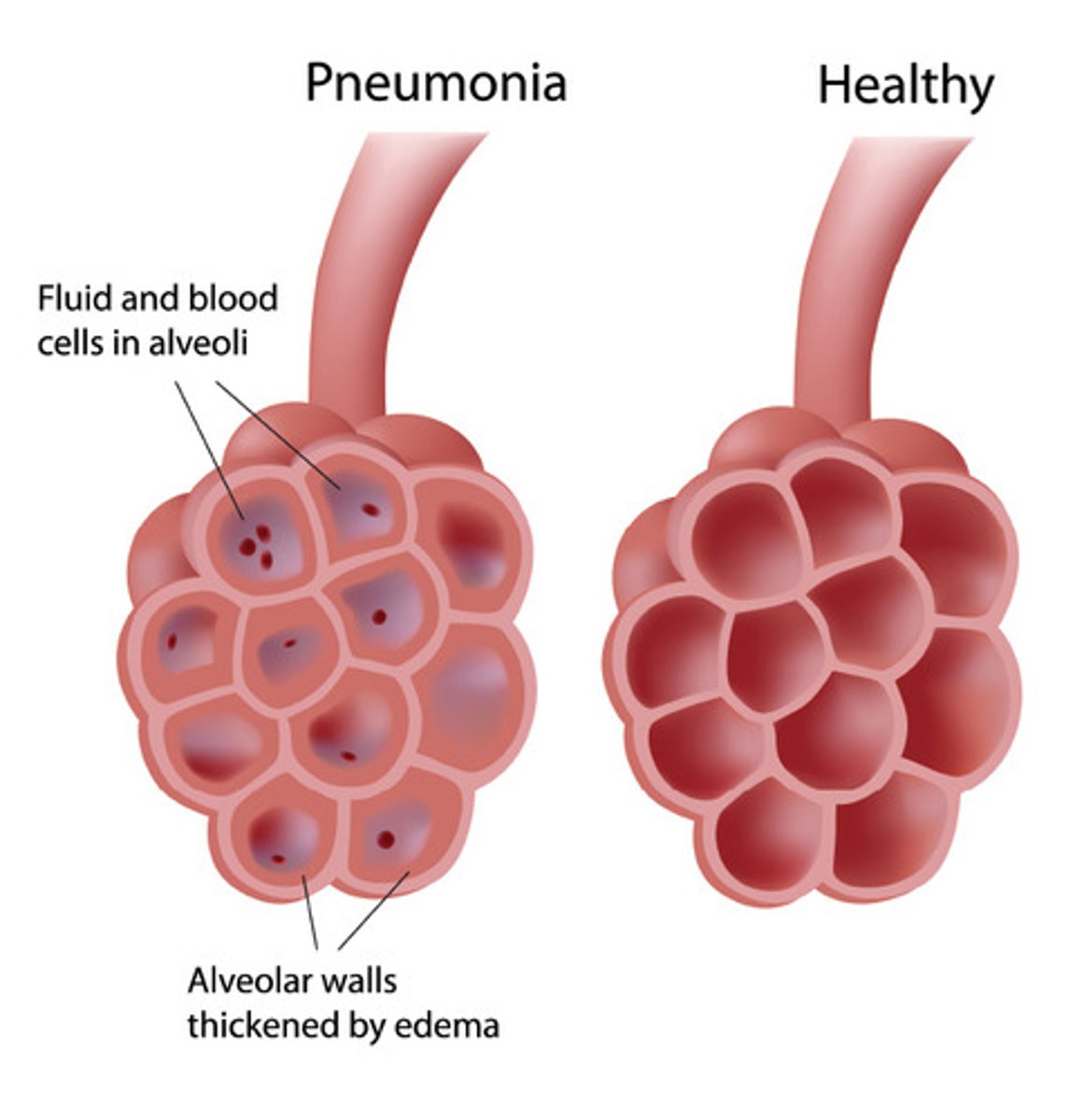4.4 - Lifestyle and effects of Environment on Gas Exchange
1/3
There's no tags or description
Looks like no tags are added yet.
Name | Mastery | Learn | Test | Matching | Spaced |
|---|
No study sessions yet.
4 Terms
Emphysema
- Caused by long-term exposure to irritants entering the lungs. (eg. Smoke, Dust, Pollution)
- Alveoli become damaged from the particles, making them lose their elasticity, often becoming fibrous tissue and may down, which reduces the internal surface area of the alveoli.
- Thus, two problems: Inadequate surface area for gas exchange and difficulty in ventilating the lungs, as it requires voluntary effort rather than a passive process.
- No cure, progression of the disease cannot be ceased.

Lung Cancer
- The development of a mass of cells that divides in an uncontrolled way, which is a tumour.
- Exposure to asbestos fibres, pollutants, and tobacco from smoking increases the risk for lung cancer.
- Begins in the walls of the air passages, usually the bronchi, and the inhaled particles constantly irritate the mucous membrane that lines the air passages.
- This creates an excessive production of mucus, causing the cells at the base of the membrane to divide more rapidly. (The accumulation of mucus cannot be removed.)
- This results in 'smokers cough', and the trapped mucus causes the alveoli to rupture. -> Emphysema -> Cancer in the air passages can travel around the body.

Lung Infections
- Pneumonia is an infection of the lungs caused by bacteria, viruses, fungi or other organisms.
- The inflammation caused by the infection causes secretion of fluid and mucus into the alveoli, decreasing the amount of air they can contain.
- Surface area for gas exchange is also reduced.
- Tuberculosis is an infection of the lungs by the bacterium, 'Mycobacterium tuberculosis.'
- It spreads through droplets by sneezing, coughing or spitting. So any droplets of moisture containing the virus can be inhaled by others.

Asthma
- Asthma is a medical condition that causes difficulty breathing due to the narrowing of the airways. This occurs due to:
- The smooth muscles contract -> Narrowing the airways.
- Inflammation causes the lining of the airways to thicken -> Narrowing its diameter.
-Asthma can be caused by an allergic response or a non-allergic response.
- Triggers include respiratory infections, cigarette smoke and normal smoke, and exercise.
- During an attack, the muscles surrounding the bronchioles go into spasm, which causes involuntary contractions, the narrowing of the air passages, and thus difficulty breathing.
